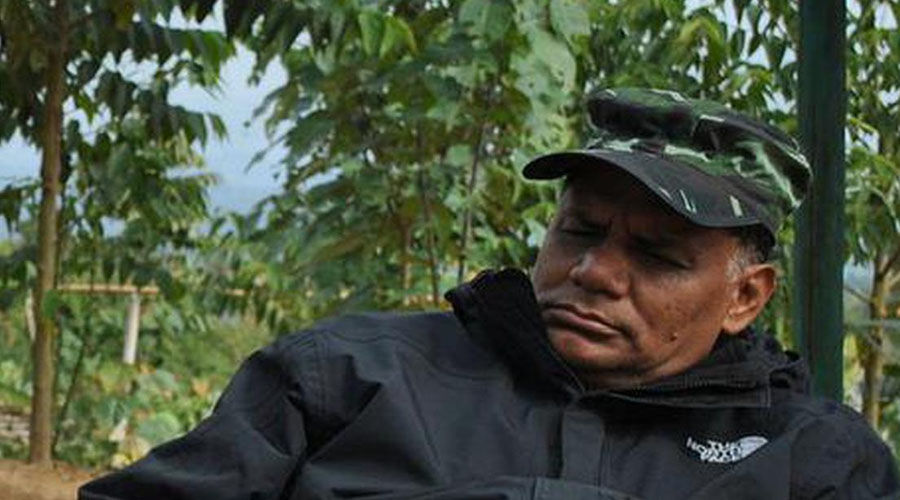Kaniz Nusaiba, The TBH Desk
It is now well-known that India’s separatist United Liberation Front of Assam (ULFA) used Bangladesh for arms shipments during the BNP-Jamaat-led four-party coalition government in Dhaka.
During this period, 10 truckloads of weapons were seized at a jetty in Chattogram (formerly known as Chittagong). Later, when the government led by Awami League and 14 party coalition came to power in Dhaka, the investigation of this incident came up along with the beginning of patronage of BNP-Jamaat government.
Now a new information has come forward, which shows that not only during the BNP-Jamaat alliance, but also after the formation of the government in the first term after BNP won the election in 1991, ULFA’s first arms shipment was smuggled through Bangladesh.
This sensational information is revealed in a new book published by HarperCollins this month, which is written by Rajeev Bhattacharyya, a investigative Indian journalist and author of several books.
The episode which had remained under wraps happened in mid-1993, almost two years after the ULFA leadership shifted its base to Bangladesh to evade arrest by Indian security forces, reveals the book titled, ‘ULFA: The Mirage of Dawn’.
According to the book, the first arms shipment for ULFA came from Romania in a deal firmed up by an Indian-origin man who allegedly worked for a foreign spy agency. The Singapore-based agent had travelled to Romania’s capital Bucharest with ULFA chief of staff Paresh Baruah and two other functionaries of the outfit to seal the deal that consisted of assault rifles, pistols, light machine guns and explosives. The book claims that the dealer was allegedly worked for Mossad, the Israeli spy agency.
The book mentions that this incident was not linked to the widely publicized Chattogram case of 2004, in which 10 truck-loads of arms and ammunition meant for the ULFA and a few other rebel groups were confiscated by Bangladeshi security forces.
The book, a copy of which is with the Bangla Herald, offers a panoramic perspective of the rebel group. Based on decade-long field research by journalist and author Rajeev Bhattacharyya, it focusses on ULFA’s foreign bases and operations that extended from Pakistan and Bhutan to Bangladesh, Myanmar and China.
According to the new information reveals in the book, after months of trying to hook up a contact, Baruah succeeded in gathering details about an agent in Singapore whose parents had migrated from Tamil Nadu several decades ago.
He was closely associated with Mossad, and also doubled up as a gun merchant occasionally to earn a quick buck, mentions the book with details about how the deal was finalised. Two senior ULFA functionaries who were in Bangladesh had revealed details about the “Indian-origin Mossad agent”.
In Bucharest, Baruah sat in a meeting with none other than Romania’s then-foreign secretary who asked a volley of queries about ULFA and its requirement of weapons. Subsequently, the chief was shown a wide array of weapons from where he made the selection.
Finally, the transaction entailed about 600 weapons which were to be delivered after a month by a ship near the Chattogram (the then known as Chittagong) port in Bangladesh where the entire top brass of ULFA lived.
From Romania, the ULFA trio, one of them was Lachit Hazarika alias Salim who was recently awarded ‘capital punishment’ by the militant outfit at a camp in Myanmar, headed to Ukraine with the agent from Singapore for a brief sojourn where they also explored the possibility of purchasing weapons in the future, as claims in the book.
Back in Bangladesh, Baruah hired a trawler from Chattogram port to be taken to the seas for receiving the weapons. The agent from Singapore also accompanied Baruah’s team to the seas but the ship was nowhere to be traced for two nights.
“It was resolved that the (Mossad) agent would make efforts to contact his sources in Bucharest to ensure the ship’s arrival at the chosen location. But something unexpected happened before he could embark on the task,” according to the book.
The ship could not be traced by the ULFA squad because it had charted a different route. The ULFA squad was alarmed when it came to know about the ship’s arrival at the port.
Loading the weapons onto trucks without the knowledge of the police appeared to be an uphill task. Nor could the ship be allowed to remain moored in the port indefinitely.
Even as Baruah was pondering over the next course of action came the news that the entire consignment had been seized by the police.
The ship was suspiciously waiting at the port. As a result, due to suspicion, the police seized the first shipment of weapons while conducting a search.
The Mossad agent managed to fly out of Bangladesh to Singapore but he went “missing” within a few months, never to be traced again. ULFA functionaries, who were in Bangladesh back then remained safe, believed that he was killed by the Israeli spy agency after his links with the rebel outfit were exposed, according to the book.

